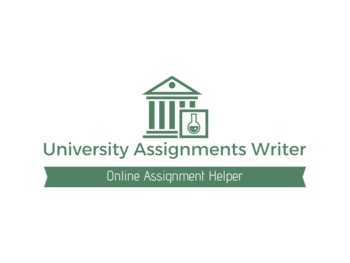Worldview Analysis and Personal Inventory Example
This assignment will introduce you to the concept of worldview. It will also provide you with a fundamental
Worldview Analysis and Personal Inventory
This assignment will introduce you to the concept of worldview. It will also provide you with a fundamental understanding of Christian spirituality that looks to the union of body, mind, soul, and spirit, along with how those beliefs inform a unique ethical awareness and decision-making in professional practice. In addition, you will gain knowledge about your own personal beliefs, according to your own worldview.
After reading topic Resources, you will complete the “Worldview Analysis and Personal Inventory” document, which includes prompts related to the following:
- Christian perspective of the nature of spirituality and ethics
- Scientism and two of the main arguments against it
- Ultimate reality
- Nature (origin) of the universe
- What it means to be a human being and purpose in your existence
- What knowledge is and sources of knowledge
- Ethics and where the knowledge of right and wrong comes from
- Purpose of human life and existence
- Influence of personal worldview values in decision-making within current or future professional practice
Support your response using only Chapter 1 from the textbook Practicing Dignity: An Introduction to Christian Values and Decision-Making in Health Care and two other Topic 1 Resources.
While APA style is not required for the body of this assignment, solid academic writing is expected, and documentation of sources should be presented using APA formatting guidelines, which can be found in the APA Style Guide, located in the Student Success Center.
This assignment uses a rubric. Please review the rubric prior to beginning the assignment to become familiar with the expectations for successful completion.
You are required to submit this assignment to LopesWrite. A link to the LopesWrite technical support articles is located in Class Resources if you need assistance.
American Association of Colleges of Nursing Core Competencies for Professional Nursing Education
This assignment aligns with the AACN Core Competency: 1.2
Expert Answer and Explanation
Worldview Analysis and Personal Inventory
Student Name:
- Christian Perspective of Spirituality and Ethics
| The Christian worldview presents a holistic understanding of spirituality. The worldview is essential since it focuses on emphasizing the union of body, mind, soul, and spirit. In Christianity, the nature of spirituality is deeply affixed with the belief that human beings are created in the image of God (Imago Dei) (Bogue et al., 2022). This belief grants inherent dignity and worth to every individual, signifying that each person has a purpose aligned with God’s divine plan.
Spirituality, from a Christian perspective, involves a relationship with God, nurtured through faith, prayer, and the study of the Bible. It is not merely a personal or private matter but extends to every aspect of life, influencing moral choices, relationships, and professional conduct. Christians are required to adhere to the teachings from the Bible and live in accordance with the Bible. Christian ethics are engrained in the teachings of Jesus Christ, particularly the principles of love, compassion, justice, and humility. The Bible serves as the foundation for ethical decision-making, providing guidelines that reflect God’s will. Christians believe that moral values are absolute, grounded in the character of God, and are universally applicable. Ethical behavior, is seen as an expression of one’s faith, manifesting in actions that promote the well-being of others, uphold justice, and honor God (Bogue et al., 2022). The Christian ethical framework emphasizes the importance of loving one’s neighbor, advocating for the marginalized, and living a life that reflects the teachings of Christ. Caring or your neighbor as you care for yourself is a major key factor within the Christian teaching. In professional practice, this translates into integrity, fairness, and a commitment to serving others, guided by the conviction that every individual is valued in the eyes of God. |
2. Scientism and Arguments Against It
| Scientism is the belief that science is the ultimate authority on all matters of knowledge, asserting that only empirical evidence and scientific methods can lead to true understanding (Mietzner, 2020). This perspective often dismisses other forms of knowledge, such as philosophical reasoning, ethical considerations, and religious beliefs, as inferior or irrelevant. Scientism holds that if something cannot be measured, tested, or observed through scientific methods, it does not exist or is not worth considering.
However, there are significant arguments against scientism. One of the primary criticisms is that scientism is self-refuting (Mietzner, 2020). The claim that only scientific knowledge is valid cannot itself be proven through scientific methods. It is a philosophical assertion, which means scientism relies on non-scientific reasoning to justify its stance, thus undermining its own premise. Be that as it may, scientism ignores the complexity of human experience, which entails aspects of life that are beyond the reach of empirical science (Mietzner, 2020). For example, concepts like love, morality, beauty, and meaning cannot be fully explained or measured by science, yet they are central to the human experience. Another argument against scientism is its reductionist tendency, which oversimplifies complex realities by reducing them to mere physical processes (Mietzner, 2020). This approach fails to acknowledge the subjective and qualitative aspects of life, such as emotions, ethical values, and spiritual experiences, which are crucial to understanding the full scope of human existence. Critics argue that by dismissing these dimensions, scientism offers an incomplete and distorted view of reality. |
3. Worldview Prompts
a. Ultimate Reality
| I believe that ultimate reality is a profound and complex concept that entails both the physical and the spiritual spheres of life. While the physical world is what we can observe, measure, and interact with, there is also an underlying spiritual dimension that transcends our sensory experiences. This spiritual reality, in my view, is governed by a higher power or divine force that provides order and purpose to the universe.
This belief in a higher power shape my understanding of reality as not merely a collection of material objects and phenomena but as a meaningful and interconnected whole. The spiritual aspect of ultimate reality adds depth to existence, offering a sense of purpose and direction that goes beyond the observable world (Bogue et al., 2022). It is this blend of the material and the spiritual that forms the foundation of my worldview, guiding my actions, beliefs, and understanding of life. |
b. Nature (Origin) of the Universe
| In my perspective, the origin of the universe is a synthesis of both natural processes and divine intervention. I accept scientific explanations such as the Big Bang theory, which provides a detailed account of the physical beginnings of the universe. However, I also believe that there is a divine force that initiated and continues to sustain the universe. This divine force is not just a creator but also an ongoing presence that imbues the universe with purpose and meaning.
The natural laws that govern the universe, such as gravity and thermodynamics, are, in my view, expressions of this divine order. The universe, therefore, is not just a random occurrence but a purposeful creation that reflects both the physical and the spiritual (Bogue et al., 2022). This belief allows me to appreciate the wonders of science while also recognizing the deeper spiritual significance behind the existence of the cosmos. |
c. What It Means to Be a Human Being and Purpose in Your Existence
| In my perspective, being human means embodying a unique combination of consciousness, self-awareness, and the ability to reason, feel, and make moral decisions. Humans possess the distinct capacity to reflect on their existence, understand complex ideas, and create meaning through their actions and relationships. The purpose of human existence, from my perspective, is to seek fulfillment and meaning through personal growth, nurturing relationships, and contributing to the greater good of society. This purpose is not solely about individual success or happiness but also about how one’s life positively impacts others and the world at large.
Human beings have control over their self, their willingness, decisions, and how they interact with others in the world. The free will makes them to take control over their life and ensure that they meet the individual and universal purpose (Bogue et al., 2022). By balancing self-interest with the well-being of others, humans can lead purposeful lives that are aligned with ethical principles and values. In essence, being human involves a continuous journey of self-discovery, learning, and striving to make a meaningful difference in the world. |
d. What Knowledge Is and Sources of Knowledge
| I understand knowledge to be an integration of empirical evidence, rational thought, intuition, and experience. Knowledge is not just the accumulation of facts but also the wisdom gained through personal experiences, cultural traditions, and spiritual insights (Bogue et al., 2022). Scientific research and rational thinking provide us with reliable methods to understand the physical world, but there are also other important sources of knowledge, such as intuition, which can guide decisions in situations where empirical evidence may be lacking.
Additionally, spiritual teachings and cultural traditions offer valuable insights into the human condition, ethics, and the meaning of life. I believe that true knowledge is holistic, combining the objective and subjective, the material and the spiritual, to provide a comprehensive understanding of the world and our place in it. It is through this blend of sources that we can gain a deeper, more meaningful comprehension of life. |
e. Ethics and Where the Knowledge of Right and Wrong Comes From
| For me, ethics is the framework that guides our decisions and actions, helping us determine what is right and wrong. The knowledge of right and wrong is derived from a combination of societal norms, personal experiences, and an innate sense of morality that is influenced by both reason and emotion. Cultural, religious, and philosophical teachings also play a significant role in shaping our ethical understanding.
I believe that this innate sense of morality is universal, grounded in the belief that all individuals have intrinsic worth and should be treated with respect and dignity. Ethical principles, such as fairness, compassion, and justice, are not just abstract concepts but are essential for fostering harmonious relationships and communities. By adhering to these principles, we can navigate the complexities of life in a way that honors the dignity of others and contributes to the greater good. |
f. Purpose of Human Life and Existence
| The purpose of human life, in my view, is to seek meaning, cultivate relationships, and contribute to the betterment of society. Each person has the potential to make a positive impact on the world through their actions, and fulfillment comes from living a life that aligns with one’s values and contributes to the well-being of others. This purpose is not fixed but evolves as individuals grow, learn, and encounter new experiences.
Life’s purpose is found not only in personal achievements but also in how we help others, build communities, and leave the world a better place than we found it (Weathers, 2018). This belief in the evolving and relational nature of life’s purpose encourages me to remain open to change, to continuously seek out new opportunities for growth, and to engage with the world in a way that is compassionate, ethical, and purposeful. |
4. Influence of Personal Worldview in Professional Practice
| My personal worldview significantly influences my approach to professional practice, particularly in decision-making. I believe that every individual deserves to be treated with respect and dignity, regardless of their background or circumstances. This belief drives my commitment to ethical practice, where decisions are made with consideration for the well-being of others and the greater good. In my current or future professional roles, I strive to balance efficiency and effectiveness with empathy and compassion. For instance, when faced with ethical dilemmas, I rely on my belief in the inherent worth of every person to guide my choices, ensuring that my actions are fair, just, and aligned with my values.
My worldview also encourages me to seek continuous personal and professional growth, as I believe that ongoing learning and self-improvement are essential to fulfilling my purpose and making a positive impact in my field. This perspective helps me stay open to new ideas, collaborate effectively with others, and approach challenges with a problem-solving mindset, always aiming to contribute meaningfully to my profession and society as a whole. |
References
Bogue, D. W., Cota, M., De La Torre, V. J., Evans, K. A., Hoehner, P. J., Hogan, M., & White, N. H. (2022). Practicing Dignity: An Introduction to Christian Values and Decision-Making in Health Care (Third). Grand Canyon University. https://bibliu.com/app/#/view/books/B1B4SGSSID7LR/epub/TItlePage.html#page_2
Mietzner, M. (2020). Populist anti-scientism, religious polarisation, and institutionalized corruption: How Indonesia’s democratic decline shaped its COVID-19 response. Journal of Current Southeast Asian Affairs, 39(2), 227-249. https://doi.org/10.1177/1868103420935561
Weathers, E. (2018). Spirituality and health: A Middle Eastern perspective. Religions, 9(2), 33. https://doi.org/10.3390/rel9020033
Place your order now for a similar assignment and get fast, affordable and best quality work written by our expert level assignment writers. Limited Offer: Use Coupon Code NEW30 to Get 30% OFF Your First Order
Limited Offer: Use Coupon Code NEW30 to Get 30% OFF Your First Order

Worldviews: Definition, Examples, and Types
Key Takeaways
✅ A worldview is a belief system that shapes perception.
✅ Major types include religious, philosophical, and political worldviews.
✅ Identifying your worldview helps in personal growth and communication.
Introduction
A worldview is the lens through which individuals interpret reality, shaping their beliefs, values, and actions. It influences how people perceive morality, religion, politics, and even everyday decision-making.
In this article, we’ll explore:
-
What a worldview is
-
Different types of worldviews
-
Real-world examples
-
How to identify your own worldview
What Is a Worldview?
A worldview is a framework of beliefs and assumptions that help individuals make sense of the world. It answers fundamental questions like:
-
Is there a God?
-
What is the purpose of life?
-
How should society be structured?
Worldviews can be shaped by religion, culture, philosophy, and personal experiences.
Key Elements of a Worldview
-
Metaphysics (What is real?)
-
Epistemology (How do we know what is true?)
-
Ethics (What is right and wrong?)
-
Aesthetics (What is beautiful or meaningful?)
Types of Worldviews
Worldviews can be broadly categorized into several types:
1. Religious Worldviews
-
Christian Worldview: Belief in God, sin, salvation through Jesus.
-
Islamic Worldview: Submission to Allah, following the Quran.
-
Buddhist Worldview: Focus on enlightenment and karma.
2. Philosophical Worldviews
-
Existentialism: Emphasizes individual freedom and choice.
-
Stoicism: Focuses on self-control and rationality.
-
Humanism: Prioritizes human reason and ethics over religion.
3. Political/Economic Worldviews
-
Capitalism: Free markets and private ownership.
-
Socialism: Collective ownership and wealth redistribution.
-
Libertarianism: Minimal government intervention.
4. Personal Worldviews
-
Optimism vs. Pessimism: How one views the future.
-
Materialism vs. Spiritualism: Focus on physical vs. spiritual well-being.
Worldview Examples
Here are some real-world examples of different worldviews:
1. A Humanist Worldview
-
Belief: Humans are capable of solving problems through reason.
-
Example: Secular humanists prioritize science and ethics over religion.
2. A Biblical Worldview
-
Belief: The Bible is the ultimate authority.
-
Example: Rejecting evolution in favor of creationism.
3. A Scientific Naturalist Worldview
-
Belief: Only the physical world exists; no supernatural forces.
-
Example: Relying on empirical evidence for truth.
4. A Postmodern Worldview
-
Belief: Truth is subjective and shaped by culture.
-
Example: Rejecting absolute moral standards.
How to Identify Your Worldview
Ask yourself:
-
What do I believe about God?
-
What is the meaning of life?
-
What are my core ethical principles?
If you’re unsure, take a worldview assessment quiz (many are available online).
Why Understanding Worldviews Matters
-
Helps in self-awareness.
-
Improves communication with people of different beliefs.
-
Influences decision-making in politics, ethics, and relationships.
Conclusion
Your worldview shapes how you see the world—whether through religion, philosophy, or personal values. By examining different worldview examples, you can better understand your own beliefs and those of others.
Worldview Analysis and Personal Inventory
Student Name:
After reading the topic Resources, respond to the following, using only citations from the topic Resources:
Based on the topic Resources, in 250-300 words, explain the Christian perspective of the nature of spirituality and ethics.
Based on the topic Resources, in 250-300 words, explain the term scientismand describe two of the main arguments against it.
Respond to each of the worldview prompts according to your personal worldview, or “your own personal beliefs that comprise your worldview.”
In 125-150 words, explain ultimate reality.
In 125-150 words, explain the nature (origin) of the universe.
In 125-150 words, explain what it means to be a human being and if there is purpose in human life and existence.
In 125-150 words, explain what knowledge is and what the sources of knowledge are.
In 125-150 words, explain ethics and where the knowledge of right and wrong comes from.
In 125-150 words, explain the purpose of your life and existence.
In 125-150 words, explain the influence of your personal worldview values in decision-making within current or future professional practice.
References

Dan Palmer is a dedicated academic writing specialist with extensive experience supporting nursing students throughout their educational journey. Understanding the unique challenges faced by nursing students who balance demanding clinical rotations, family responsibilities, and rigorous coursework, Dan provides professional assignment assistance that helps students maintain academic excellence without compromising their other commitments.
With a comprehensive understanding of nursing curriculum requirements and academic standards, Dan delivers high-quality, thoroughly researched assignments that serve as valuable learning resources. His expertise spans various nursing disciplines, including clinical practice, healthcare ethics, patient care management, and evidence-based research.
Dan’s approach combines meticulous attention to detail with a commitment to timely delivery, ensuring that busy nursing students receive the support they need when they need it most. His professional assistance has helped countless nursing students successfully navigate their academic programs while maintaining their professional and personal responsibilities.
Committed to academic integrity and excellence, Dan Palmer continues to be a trusted resource for nursing students seeking reliable, professional assignment support.


